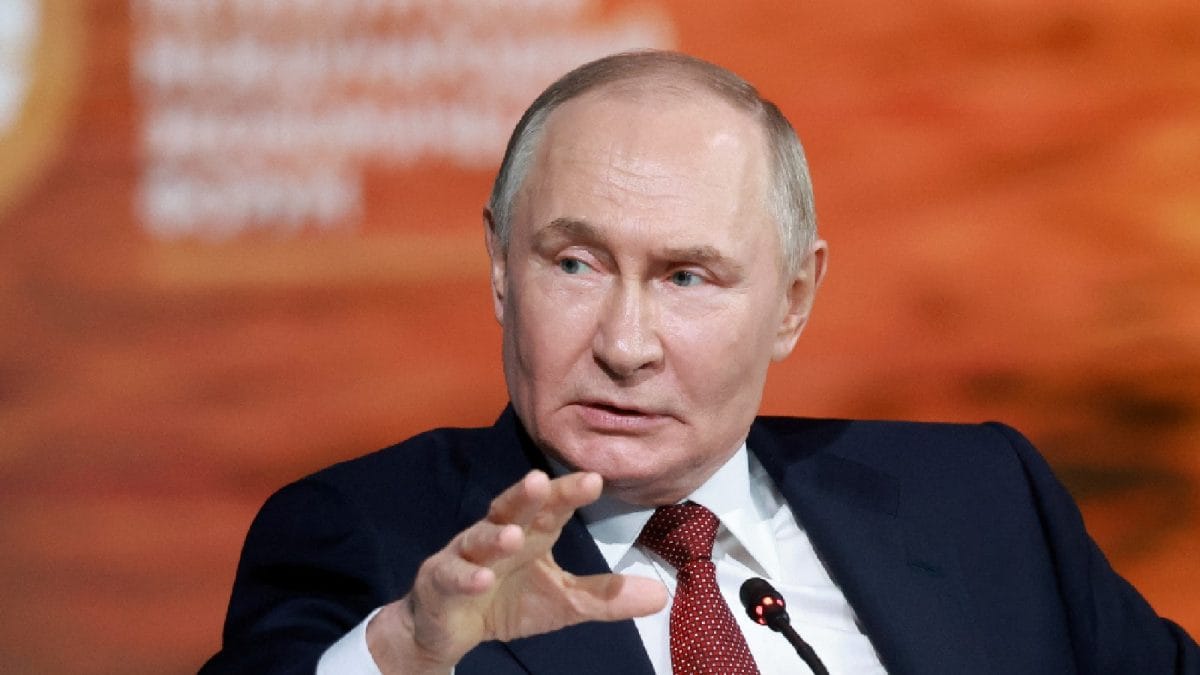Last Updated:
Drones disrupted flights at Aalborg, Billund, Copenhagen and other Denmark airports, prompting hybrid attack concerns.

Russian President Vladimir Putin. (Reuters file photo)
Denmark said drones that disrupted flights at several of its airports this week were likely launched by a “professional actor” but there is no evidence linking Russia. The incidents have raised concerns across Europe, already on edge over Moscow’s war in Ukraine.
What happened In Denmark?
Recommended Stories
On Wednesday night, Aalborg airport in northern Denmark was forced to close for several hours after drones with green lights were spotted overhead. Around the same time, drones were reported near three smaller airports- Esbjerg, Sønderborg and Skrydstrup. Later, suspected drones caused a temporary shutdown of Billund airport, one of Denmark’s busiest. Airspace was reopened after 03:00 local time but at least three flights had already been diverted. Two days earlier, Copenhagen airport also shut down briefly after drone activity.
Denmark’s Defence Minister Troels Lund Poulsen described the latest incident as a “hybrid attack” and part of a “systematic operation.”
What Is A Hybrid Attack?
A hybrid attack mixes military and non-military tactics to disrupt a country’s institutions or infrastructure. In this case, the drones did not strike but forced airports to halt air traffic, causing delays and diversions. The drones were not shot down despite Danish authorities having the capability to do so. Police said this was due to concerns about civilian safety.
Is Russia To Blame?
Officials in Copenhagen stressed there is no evidence linking the incursions to Russia. The Russian embassy dismissed “absurd speculations,” calling the incidents “staged provocations” designed to escalate tensions over Ukraine. Denmark Prime Minister Mette Frederiksen said Russian involvement in an earlier drone incident over Copenhagen “could not be ruled out,” calling it the most severe attack on Danish infrastructure so far.
Russia has previously been accused of hybrid attacks and of violating European airspace but Moscow has denied deliberately sending drones or jets into NATO territory.
Why Does This Matter For Nato?
The incidents come amid heightened tensions in Europe. Poland and Estonia reported Russian incursions into their airspace earlier this month while Romania said one of its regions was struck by a Russian drone. Suspicious drone flights have also been reported over Germany and Sweden. NATO has said it will use “all necessary military and non-military tools” to respond to such threats.
What Happens Next?
Danish Justice Minister Peter Hummelgaard said hybrid threats were “here to stay.” Defence Minister Poulsen said the government was working with the EU to strengthen drone defences, with the issue expected to be discussed at an EU meeting this week. Earlier this month, European Commission President Ursula von der Leyen called for a “drone wall” across Europe, though details remain unclear.
Russia
September 25, 2025, 19:48 IST
Loading comments…
Read More



